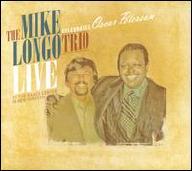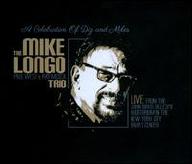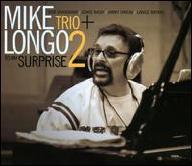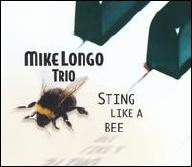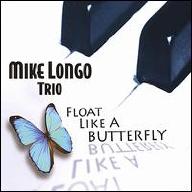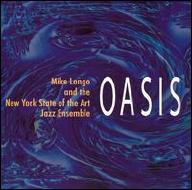Born in 1937 in Cincinnati, Ohio, Michael Josef Longo grew up in a musical household with a father who played bass and a mother who played organ in church. Introduced to the piano at a young age, he studied classical music at the Cincinnati Conservatory of Music and, inspired by artists like Count Basie and Sugar Chile Robinson, began learning boogie-woogie and jazz. He eventually moved with his family to Fort Lauderdale, Florida, where his father worked in the produce industry and led a band. It was during this period that Longo gained his first live experience playing with his father and winning several local talent contests. While still in high school, he also began playing nightclub dates, including a formative gig with alto saxophonist Cannonball Adderly.
After high school, Longo studied classical piano at Western Kentucky University, graduating in 1959 with a B.A. in music. From there he toured with the Salt City Six combo before settling in New York City. There, he quickly found work backing luminaries like trumpeter Red Allen and tenor saxophonist Coleman Hawkins. After a year, he moved to Toronto to study privately with the pianist Oscar Peterson. Returning to New York, he continued his work as a sideman, as well as leading the house band at the Embers West nightclub, accompanying performers like Roy Eldridge, Nancy Wilson, Paul Chambers, Gloria Lynne, and Joe Williams. It was while at the Embers in 1966 that he caught the attention of trumpeter Dizzy Gillespie, who then hired him as his musical director and arranger. Longo would work closely with Gillespie throughout the '60s and '70s, appearing live and contributing to such albums as 1967's Swing Low, Sweet Cadillac, 1969's The Real Thing, and 1970's Portrait of Jenny. He retained a close relationship with Gillespie throughout his life, working with him periodically until the trumpeter's death in 1993.
On his own, Longo made his debut with A Jazz Portrait of Funny Girl, a trio album inspired by the hit musical, featuring bassist Herman Wright and drummer Roy Brooks. He continued to perform and record in various settings throughout the '70s, issuing albums like 1972's The Awakening, 1975's 900 Shares of the Blues with Joe Farrell and Ron Carter, and 1976's Talk with the Spirits. Though always rooted in bebop and acoustic modern jazz, these albums found Longo embracing funk and soul influences. Also during these years, there were more albums with Gillespie, as well as appearances on record with Astrud Gilberto, Lee Konitz, and James Moody. Longo continued his education, studying composition privately with Hall Overton.
It was during the '70s that Longo began to branch out, authoring numerous music theory and education books. He also founded the Consolidated Artists Productions, a publishing company and record label that he used to help promote other artists. Following a 1982 solo album, Solo Recital, he returned to regularly recording in the '90s with LPs like 1990's The Earth Is One Country, 1995's Gillespie tribute I Miss You John, and 1997's Dawn of a New Day. Also in the late '90s, he founded the New York State of the Art Jazz Ensemble.
Longo stayed active throughout the 2000s, releasing albums like 2003's Live: The Detroit International Jazz Festival, 2004's Oasis with the New York State of the Art Jazz Ensemble, and the 2007 trio album Float Like a Butterfly. Introduced to the Baha'i faith by Gillespie, Longo also helped get the Baha'i Center of New York City to name its performance hall the John Birks Gillespie Auditorium. In 2004, he began hosting a weekly jazz series there, booking acts and performing with his own groups. In 2011, he released To My Surprise, which featured his trio, as well as guest appearances by trumpeter Jimmy Owens and saxophonist Lance Bryant. Live from New York arrived in 2013, and found the pianist leading the New York State of the Art Jazz Ensemble in concert at the New York Baha'i Center. Another trio album, Step on It, with bassist Bob Cranshaw and drummer Lewis Nash, arrived in 2014. Longo died at age 83, on March 22, 2020, from the COVID-19 virus. ~ Matt Collar, Rovi


